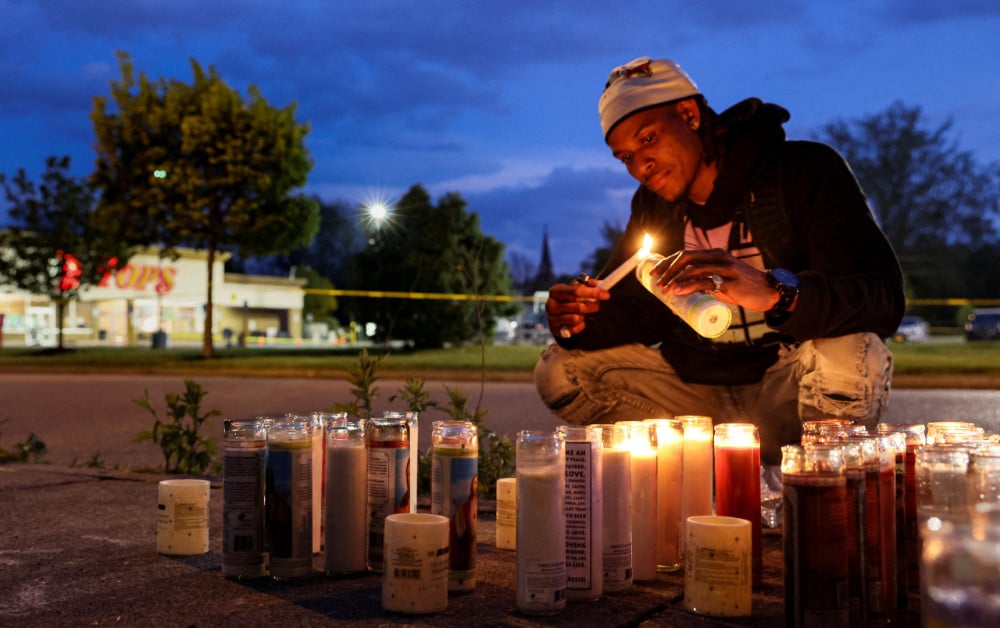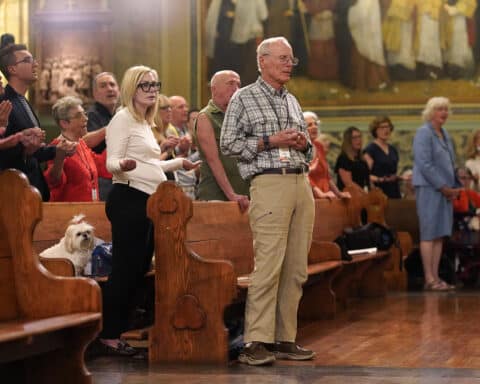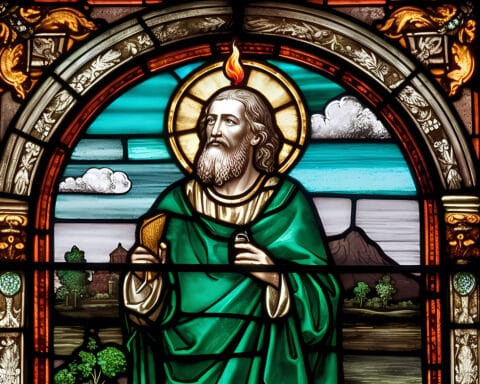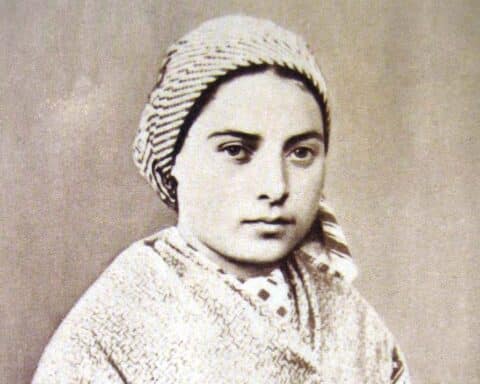Some may wish to believe our national conversation about race has been concluded. And yet, the response to memorials of Black victims of racialized violence indicates there is much to discuss.
The memorial sign for Emmet Till, who was tortured and murdered in 1955, was vandalized so many times since its 2008 installation that its most recent 2019 replacement is made of steel, weighs more than half a ton and is designed to absorb a rifle round.
Vandals target and damage memorials across the country of Breonna Taylor, killed by police using a no-knock warrant in March 2020, and of George Floyd. A memorial to Ahmaud Arbery, murdered by three men who pursued, detained and shot him because they thought he was a burglar after seeing him jog through their neighborhood, was also defaced.
I am not surprised.
A spiritual danger lurks
At the heart of these efforts is not merely a difference or disagreement of opinions but, in many instances, a sign of something more spiritually dangerous.
What we are witnessing is a lack of recognition and respect for others’ basic human dignity. These attacks are deliberate attempts to minimize and silence efforts for redress and to rob the community of catharsis.
I wish that kind of racial antipathy were absent among Catholics. I wish we, by the profession of our faith, were impervious to the effects of anti-Black racism. I specifically speak of anti-Black racism because of its long history in our country and also, sadly, among the members of our Church.
The doors of the Church are not a shield against racism. By racism, I mean the attitudes, practices, customs, cultural representations, laws and systems that condition society to believe that only some people of a particular race are worthy of dignity and respect and others are not. As a result of these beliefs and corresponding actions, the human flourishing of the targeted group is undermined.
There were public instances of anti-Black racism before and after George Floyd’s murder and, shockingly, these occurred in Catholic settings.
Here are only a few examples of anti-Black racism in Catholic spaces:
In 2017, a 16-year old student at a public high school posted racist comments to his classmates via Skype, text messages and shared study documents. According to some of his classmates, he was known to share similar comments out loud and was not afraid to do so.
None of his classmates reported his comments at the time. Keep in mind that after the racist comments were made in 2017, a fellow student killed 17 of their schoolmates in 2018. As a school shooting survivor, the student rose to prominence as an opponent of gun control and his racist comments remained hidden.
Later, he applied to Harvard University, and Harvard initially accepted him until it learned about his racist comments. One of his schoolmates revealed she came forward “because she sees [the man’s] behavior as problematic.” She said “I honestly think, yeah, he’s racist against black people.” Harvard cited his lack of maturity and moral character in its decision to rescind his acceptance in 2019.
Some were incensed by the consequences, including a Catholic professor at The Catholic University of America. He published an article in a Catholic publication decrying Harvard University’s decision as lacking charity, forgiveness and grace.
The professor cited the 18-year-old’s tweeted apologies as showing “enormous contrition” even though the young man never specifically admitted that his remarks were racist, nor did he specifically apologize to the Black athletes whom he demeaned in his Skype and text messages.
The professor not only downplayed the racist remarks, he also denounced the classmates who publicized them.
Why wasn’t there a serious examination of the effects, spiritual and otherwise, of racist behavior? Why wasn’t the racial slur identified as sinful and an abuse of language meant to rob Black people of their human dignity?
When the murders of Ahmaud Arbery and George Floyd became public, a self-described pro-life Catholic with a verified Twitter account shared astonishingly cruel posts regarding the deceased.
The most offensive tweet read, “Just a reminder that George Floyd has now gone five weeks and two days drug free.” This callous tweet employed mockery and derision to attack persons, which in itself are acts that violate charity and justice.
Furthermore, his tweets demonstrated an impoverished understanding of respect for human dignity. It goes without saying that human dignity is central to the pro-life movement, and imago dei is the reason for that dignity. This is one of the most basic moral and social teachings of the Catholic Church.
He retired his Twitter account for now.
Another Catholic professor, this time at the University of Notre Dame, wrote several articles that some of his colleagues described as “blatantly false, racist, and inflammatory statements that are the products of terribly flawed research. [His] work unambiguously promoted a racist trope about interracial sexual violence that has inspired hatred and violence throughout American history.”
Well, we know that words can have consequences.
In May 2022, an 18-year-old white supremacist gunned down 10 Black people at a Tops Family Market in Buffalo, New York. The young mass murderer cited this professor’s writings in his manifesto. One can only wonder how many other souls have been negatively influenced by this professor’s writings.
By the light of faith
To me, these are a scintilla of the racism that pervades not only our American culture but also, unfortunately, some spaces within the U.S. Catholic Church. As Catholics, we have a moral obligation to confront the sin of racism. We must facilitate an examination of conscience, make reparation to God for these sins and ask for his help in the ongoing work of conversion and repentance.
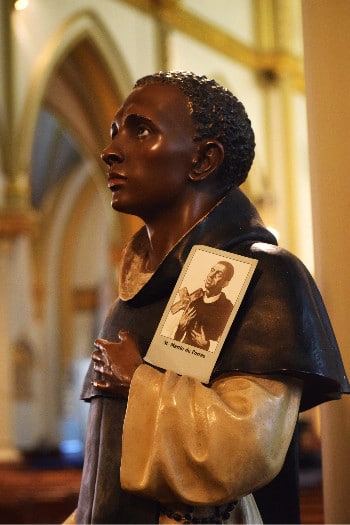
As such, we need to keep the conversation on race open, but it has to be held illuminated by the light of our faith. As I write this article, I have reflected prayerfully on St. Martin de Porres, whose feast day we celebrate in November (which is Black Catholic History Month).
His life reads like the lives of not a few of us today. Consider his background: He was a poor child raised in what some would call a fatherless home. He was bright but undereducated and denied opportunities and discriminated against on account of his African and indigenous ancestry.
Having borne the brunt of racist insults, I wince thinking how he was mocked, bullied and, on one occasion, allegedly called a “mulatto dog.”
Despite the obstacles placed in his path toward his religious life, he persevered in his faith and distinguished himself in his piety and charity. When he died, he was widely acclaimed for his personal holiness and for having wrought miracles.
Yet without knowing anything about him, might he have been otherwise discounted and dismissed or debased on account of his race and upbringing?
We possess a sacred and inviolable dignity because we are made in the image and likeness of God. Tragically, this truth has been obscured by centuries of racist conditioning.
I will not condemn the people or organizations previously mentioned in this article.
Yet I must point out their anemic understanding of the dignity of the human person with regard to race in the above examples.
They, too, are victims of racism inasmuch as they do not perceive the lack of empathy or the outright hostility toward Black people in their public expressions (and maybe even in the private ones, as well).
Pope St. John XXIII said this during his homily for the canonization of St. Martin De Porres: “St. Martin, always obedient and inspired by his divine teacher, dealt with his brothers with that profound love which comes from pure faith and humility of spirit. He loved men because he honestly looked on them as God’s children and as his own brothers and sisters.”
Reflect on St. Martin De Porres’ holy life, Ask for his intercession. Ask him to petition God to give us that same grace he received so we may also see others as God’s children and as our own brothers and sisters. St. Martin De Porres, pray for us!
Gloria Purvis is an author, commentator and the host and executive producer of “The Gloria Purvis Podcast.”

